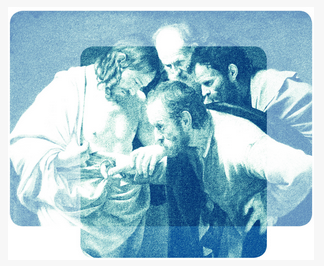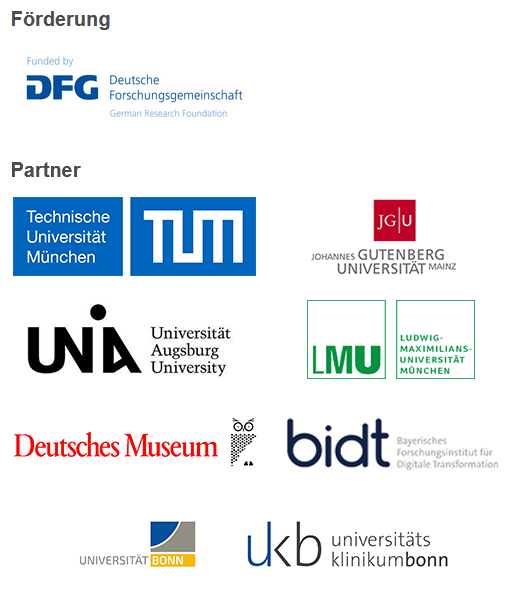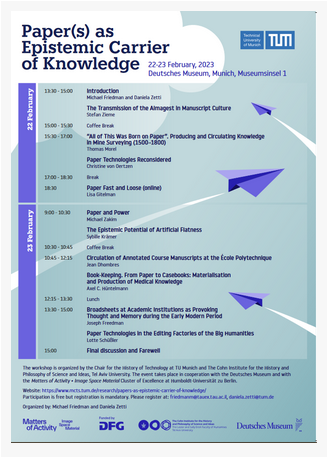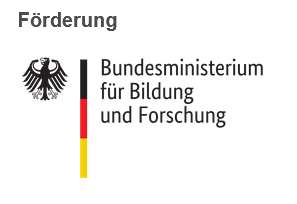Logistics, both materially and metaphorically, is tied to histories of urbanization. As a managerial rationality and a material practice for reorganizing global space in service of expanding the total circuit of flows, it is fundamentally dependent on cities and their infrastructures to keep the constant movement of flows going. The systems that coordinate the circulation of goods, ideas, and capital into integrated networks—from roads and railways to loading docks, bonded warehouses, and global communications—shape built environments, by creating operational landscapes of connectivity and transmission; designed according to a paradigm of efficiency and control. In all these regards, logistics has been central to Singapore’s urban development during the era of “First Globalizations.” Shaped by its long history of maritime commerce, the Southeast Asian metropolis was held together neither by a single language nor by political integration—although it formed part of the British Empire. Rather, it was defined by mobility and circulation, that is the constant flow of goods, people, knowledge, and commodities: a logistical city integrated by “free” trade and the forces of capital in search of profits on the forest frontiers of the Malay Archipelago. By exploring Singapore’s logistical urbanization between 1848 and 1942, my research aims to critically unpack these relations between the built networks that coordinate the circulation of things, and their effects on the everyday urban experience.
Project leader(s): Dr. Felix Mauch
Period: 01.01.2016 – 31.12.2022
Project type: ["Postdoc-Projekt \/ Post Doc Project"]
Funding institution: TUM
Evidence is continually growing in importance for political, societal, and individual decisions, despite increasing talk of an impending ‘post-factual era’. Evidence is based on data that is collected in a scientific fashion, but is also a social phenomenon. How and by whom is it created and used, and what impact does this have? These are the main questions that our Research Group has set out to investigate. Since evidence is an issue that concern many different scientific disciplines, our group is interdisciplinary in outlook. Our six sub-projects include scholars from the subject areas History of Technology, Sociology of Science/MCTS, History and Ethics of Medicine, Marketing and Consumer Research, as well as History of Science and Technology.
- Speaker: Prof. Dr. Karin Zachmann
- Co-Speaker: Jun.-Prof. Dr. Sascha Dickel (Sociology of Science, University of Mainz)
- Coordinator: Dr. Olga Sparschuh
Subprojects
subProject 4: The Role of Moralization in the Interpretation and Use of Nutritional Evidence
2020 – 2023
This project examines the evidence practices of consumers in the field of nutrition. Nutrition is an evolutionary and culturally engrained practice that has only recently – approximately the last hundred years – been strengthened, confronted or changed by findings from the nutritional sciences. The results of the first research phase show that evidence – understood as meaningful and socially accepted knowledge and guiding consumer action – is not only based on scientific knowledge, but is influenced by heuristics and values. This is especially the case when scientific knowledge is fragile and in conflict with intuitive judgments of right or wrong and good or bad.
- Prof. Dr. Jutta Roosen
- Edoardo Maria Pelli
subproject 5: The Risk Industry. Evidence for safety as a new field of research and enterprise (1960s to 1980s)
08.2020 – 08.2023
This project investigates changing evidence practices for technical safety in Germany during a key period from the 1950s to the 1980s. Whereas the first project phase focused mainly on the two technological domains of nuclear and automotive technology, the second phase will concentrate on the emergence of what we call the risk industry. We use this term to describe the new field of academic as well as commercial activity arising since the late 1960s, which used the concept of risk as a central category in order to produce and apply knowledge on and evidence for (technical) safety – in an engineering, political-discursive, as well as entrepreneurial sense. The project aims to describe the historical development of this new field of knowledge in the Federal Republic of Germany (FRG) and to analyze its role in the establishment of a new evidence regime for technical safety since the 1970s.
- Prof. Dr. Karin Zachmann
- Dr. Stefan Esselborn
Subproject 8: Obviously Excellent? Evidence practices in preparing scientific research and biographies when applying for ERC starting and consolidator grants
In the contemporary scientific system, high scientific quality – often framed as excellence – has become both a key goal of scientific and political activities and the center of many controversies How, for example, can excellence be defined, measured, compared and made evident? Subproject 8 focuses on evidence practices in the evaluation of scientific quality for research funding purposes
- Prof. Dr. Ruth Müller
- Dr. Mallory James
Project leader(s): Prof. Dr. Karin Zachmann
Period: 13.12.2016 – 30.09.2023
Project type: Verbundprojekt / Consortium Project
Funding institution: DFG


Project leader(s): Prof. Dr. Karin Zachmann, Dr. Stefan Esselborn
Period: 01.08.2020 – 01.08.2023
Funding institution: DFG
Themes: technical safety, risk, nuclear power, automobile, FRG, GDR
Since the middle of the 20th century, population movements in the western world have increasingly been dictated and controlled by the individual skills of (potential) migrants rather than their national origins. Skills have not only been considered a condition for entering the country, but also for being able to work in adequate employment positions on the labor market. In order to be able to compare professional résumés acquired in different educational systems or even cultures, western countries have tried since the 1960s to make the skills of migrants measurable. Using the examples of the Federal Republic of Germany, Canada and Great Britain, the study first examines the attempts made in the context of international economic cooperation, to evaluate and compare skills acquired abroad by migrants. Second, there is the question of whether and how knowledge of the skills of migrants has been utilised as a measure to esure that migration does not, or will not, overload the social system.
Project leader(s): Olga Sparschuh
Project type: Postdoc-Projekt / Post Doc Project
The next stage of this long-term project will attempt to synthesise previous research. The aim is to identify and historically understand the characteristics of modern technology, its social functions and its secondary consequences for social, cultural and natural processes in modern societies. To this end, a longer text is currently being drafted, which is intended to offer a historical understanding of modern technology - and modernity as a whole. A first version of the results is now available.
In addition to this larger synthesis project, I am also involved in an acatech working group on issues of technology communication, particularly in the media. In order to understand the political and social dynamics of the controversy surrounding technology and science, a historical media theory is required. That is what I will endeavour to do. At the same time, this is an important building block for the synthesis work mentioned above.
This text is an attempt to make a proposal for understanding the technology of modernity in a short space (approx. 100,000 words). The text is freely available as an e-book and can be redistributed as desired, provided the source is acknowledged. After the previous version 0.9, it is now available for the first time in authoritative form in version 1.0. I look forward to feedback and discussions.
Downloads
Technik der Moderne – Ein Vorschlag zu ihrem Verständnis, Version 1.0 (ca. 300 Seiten, pdf 6,4 MB)
Änderungen und Ergänzungen in Version 1.0 gegenüber Version 0,9 (2 Seiten, pdf 68 KB)
Technik der Moderne – Ein Vorschlag zu ihrem Verständnis, Version 0.9 (ca. 300 Seiten, pdf 6,3 MB
Projektleitung: Ulrich Wengenroth

A history of provoking thought and memory
Workshop at Deutsches Museum Munich, Kerschensteiner Kolleg, 22-23 February 2023
Program: please scroll down
Paper has long been seen in our digital century as a disappearing medium. While its continued centrality for note-taking, scribbling, and as a material
basis of expressing thought is recognized in the recent literature, today’s
final products of scientific publication processes – downloadable files and e-books – steadily transform paper’s character as a collaborative and
collective carrier of knowledge. Paper’s epistemic functions are thus individualized and marginalized – functions which were once essential for thinking with and at the same time on paper.
While we can strongly doubt that paper is disappearing from our lives, we should ask all the more how its character is changing, particularly also given how its very material basis is increasingly challenged by media ecological disturbances in its logistic chains. The workshop aims to discuss these issues in a historical perspective – i.e. discuss what it means and meant, to think with and on paper. Here thinking with does not mean necessarily a conception of a scholar, who is alone with his scribbles and a piece of paper, but it means much more thinking about paper as a communal object, which is circulating between authors and readers or between certain communities, collective actors and individuals who do not necessarily belong to the same social groups. One may take as an example the numerous notes, drafts and pieces of paper, which were found in Gottfried Wilhelm Leibniz’ library and Nachlass; those circulated among his colleagues, were copied and restructured, thus prompting new ideas and at the same time changing their function. Paper may be therefore also regarded as the subtract per se of a “trading zone” between groups of actors, as every such encounter between these groups may prompt a reconsideration of paper and what it carries. By thinking on paper we mean not only the concretization of acts of reflection on the paper (in form or writing) but also, that to use papers as epistemic objects implies material, technical, economic, physical and intellectual conditions that, depending on the context, have to be accepted, rejected, or can be changed. The desks of the present, to give another example, are involved in paper based processes of communication, storage, and deletion, and at the same time they are the site of digital processes that are administratively prepared and operated. In this interplay and co-creation of paper and digital media, relationships and collaborations have recently been changing and are challenged, such as those between author and publisher or researcher and archivist.
Summing up: the workshop aims to think on paper as an object of circulations of knowledge and of practices of enabling and transforming collective memory. Paper here should be however considered in plural, not only due to the various functions it had and has, but also since its characterization as an epistemic object. This consideration enables new research questions and marks problems without necessarily supplying answers. This epistemic character also changes over time: when paper was scarce and highly unavailable, every piece of it should have been used; at other times, when it was more abundant, its epistemic character changed, and one may suggest that scribbling, editing and re-editing of manuscripts became more abundant. How are these transformations to be seen in the natural sciences, in the development of technology and in education? How did the character of the paper as an instrument for thinking and memorizing change in history? And can one consider paper as a changing border between materiality (paper) and abstraction (thought)? We thus especially understand paper as a material foundation to human expression, capable of provoking thought.
Daniela Zetti: daniela.zetti@tum.de
Michael Friedman: friedmanm@tauex.tau.ac.il
Program: Paper(s) as Epistemic Carrier of Knowledge
February, 22-23, 2023
Deutsches Museum, Munich, Museumsinsel 1, Kerschensteiner Kolleg
22 February
13:30-15:00
Introduction
Michael Friedman and Daniela Zetti
The Transmission of the Almagest in Manuscript Culture
Stefan Zieme
15:00-15:30 Coffee Break
15:30-17:00
“All of This Was Born on Paper”. Producing and Circulating Knowledge in Mine Surveying (1500–1800)
Thomas Morel
Paper Technologies Reconsidered
Christine von Oertzen
Panel discussion moderated by Laura Niebling
17:00-18:30 Break
18:30
Paper Fast and Loose (online)
Lisa Gitelman
23 February
9:30-9:45
Welcome
9:45-10:30
Paper and Power
Michael Zakim
*cancelled – The Epistemic Potential of Artificial Flatness – cancelled*
Sybille Krämer
Panel discussion moderated by Ellen Harlizius-Klück
10:30-10:45 Break
10:45-12:15
Circulation of Annotated Course Manuscripts at the École Polytechnique
Jean Dhombres
Book-Keeping. From Paper to Casebooks: Materialisation and Production of Medical Knowledge
Axel C. Hüntelmann
Panel discussion moderated by Karin Zachmann
12:15-13:30
Lunch
13:30-15:00
Broadsheets at Academic Institutions as Provoking Thought and Memory during the Early Modern Period
Joseph S. Freedman
Paper Technologies in the Editing Factories of the Big Humanities
Lotte Schüßler
Panel discussion moderated by Felix Mauch
15:00-16:00
Final discussion and farewell
Partner
The workshop is organized by the Chair for the History of Technology at TU Munich and The Cohn Institute for the History and Philosophy of Science and Ideas, Tel Aviv University. The event takes place in cooperation with the Deutsches Museum and with the Matters of Activity • Image Space Material Cluster of Excellence at Humboldt-Universität zu Berlin.
Mail: friedmanm@tauex.tau.ac.il, daniela.zetti@tum.de - participation is free but registration is mandatory.
Please send us an email to register. Thank you!
Biofacts are hybrid objects that, like the cloned sheep and the genetically modified tomato, undermine the traditional distinction between inanimate technology and living nature and thereby cause social conflicts again and again. The current discussions on the application of genetic engineering in the agricultural and food sector are a significant example.
The objective of the research association The Language of Biofacts is to develop, through the example of high-tech plants, a theoretically and empirically sound framework for the analysis and comprehension of biofacts as socio-technical objects in modern societies. In doing so we contribute to a deeper reflection on biofacts as well as a better comprehension of current conflicts in the agricultural and food sector.
As an interdisciplinary alliance of scientists (> people) from history, philosophy, sociology and industrial design, the research association comprises six sub-projects. The scientists are based at the Ludwig Maximilian University Munich, the Technical University Braunschweig and the Technical University Munich. The coordination of the research association is situated at the Technical University Munich.
The sub-projects are supported by a varying body of experts including Dr. habil. Werner L. Kutsch (>ICOS RI), Helsinki; Dr. Martha Mertens, Munich; Dr. Helga Satzinger, London; Dipl. Volksw. Maren Schüpphaus (>ScienceDialogue & >dialogimpulse), Munich, and Prof. Dr. Bettina Wahrig Braunschweig ( >Abt. Wissenschafts- und Pharmaziegeschichte, Technische Universität Braunschweig)as permanent members. The research association receives additional support from its two practice partners the >German Museum and the >KWS SAAT SE.
The research association The Language of Biofacts is promoted by the >Federal Ministry of Education and Research in the context of its initiative >The Language of Objects from the period of 3/2015 until 8/2017. The association is supervised by the >project sponsor in the German Centre for Aviation and Space Travel.
Partner
Subprojects
BIOFACTS OF THE ATOMIC AGE: IRRADIATED ORGANISMS OF THE AGRICULTURAL AND FOOD SECTOR IN PROJECTS OF THE DEVELOPMENT AID
Irradiated organisms such as irradiated potatoes, fruit flies sterilized by radiation or radiation-induced rice mutants primarily result from the application of nuclear technologies in the agricultural and food industry which was fostered in the cold war. Its development started in the inter-war period when researchers examined the effects of radioisotopes and ionizing radiation on living organisms. What started out of curiosity was pushed under the specific conditions of the cold war from the context of the laboratory into the world of industrial application in order to prove the peaceful usability of nuclear technology.(>more)
Project leader(s): Prof. Dr. Karin Zachmann
Period: 01.03.2015 - 31.08.2017
Project type: Consortium Project
Funding institution: BMBF

The project aims to analyze practices of evidence concerning technical safety in both German states between the 1950s and the 1980s, using two specific technological fields – automobiles and nuclear power – as case studies. As key technologies of the atomic and the consumer age, both fields have had a substantial part in transforming the idea of safety/security into a societal core value. Making use of the chiasmus “practicing evidence – evidencing practice”, we study discourses as well as concrete practices of technical safety as an increasingly important precondition for the societal acceptance of technology.
Project leader(s): Prof. Dr. Karin Zachmann, Dr. Stefan Esselborn
Period: 01.04.2017 – 31.03.2020
Project type: ["Postdoc-Projekt \/ Post Doc Project"]
Funding institution: DFG
This study addresses the global spread of disease vector control regimes, when the World Health Organisation (WHO) sent scientists and experts to remote areas in Africa, the Americas, and Asia to study and transfer methods of combating insect vectors of diseases in developing countries. In doing so, they attempted to develop a distinctive environmental approach to control vector-borne diseases in the emerging Global South, and to apply this approach across contexts. This study takes as its particular subject of inquiry the circulation of knowledge between malaria and river blindness campaigns and hence the various attempts to control anopheles and black flies by techniques such as large-scale spraying of pesticides, water management and bush clearing. Local contingencies as well as the implementation of environmental protection measures gradually re-casted medical development policies. I investigate this transformation by drawing on processes in decolonizing areas in Africa and underdeveloped areas in the Americas. Tracing what has been called in an imperial context the “selective bricolage” (Ann Stoler) of ideas and practices, I will focus on understudied but fertile spatial, temporal, and epistemological connections and exchanges.
Project leader(s): Dr. Sarah Ehlers
Period:
Project type: ["Postdoc-Projekt \/ Post Doc Project"]
Funding institution: TUM
Situated at the intersection of science and technology studies, communication studies, and critical race studies, my research investigates the public circulation of scientific knowledge about racialization, health inequalities, and environmental contamination. My current research project, “Planning for Persistent Environmental Contamination: Public Health, Indigenous Traditional Knowledge, and Technoscience in Canada,” examines methodologies employed by citizen science projects to gather evidence of environmental contamination in a settler colonial context where this evidence is itself contested. Scientists have long relied upon the labor of “lay” or “amateur” data collectors whose situated knowledge of localities, access to data collection sites, and ability to devote their time and labor have provided context and direction in the production of scientific knowledge. In considering how evidence of harm is produced, I analyze contested practices of measurement and negotiations between First Nations actors, toxicologists, industry, and government policymakers over what counts as evidence.
Project leader(s): Sarah Blacker
Period:
Project type: ["Postdoc-Projekt \/ Post Doc Project"]
Funding institution: TUM